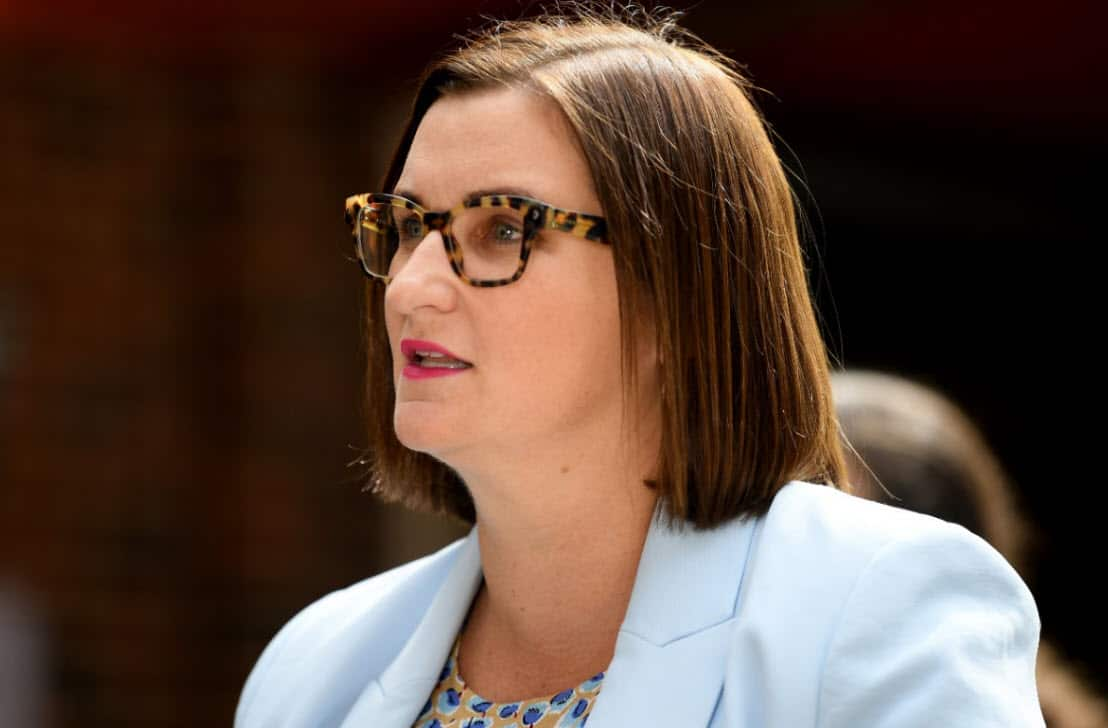Chanel Contos, the woman behind the campaign to get consent talked about in schools, has introduced an official campaign named ‘Teach Us Consent’ this week, in what she dubbed: “an urgent plea for educational reform in our country.”
“Students want frank sex education,” Ms Contos told The Feed.
“We don’t need to talk about birds and bees, we don’t need to talk about milkshakes. It’s sex, everyone knows what it is. We just need to talk about the intricacies of it openly.”
When 22-year-old Chanel Contos learnt sex ed at high school, consent wasn’t yet part of NSW’s curriculm.
The fact that her Sydney private school even chose to deliver lessons about sexual assault was an “anomaly,” she told The Feed.
Ms Contos said those lessons were not “comprehensive” but they did “objectively tell us what sexual assault was.”
“That was also when me and a lot of my friends realised we’d been sexually assaulted,” she said.

Consent advocate and university student Chanel Contos. Source: Instagram
Years later, Ms Contos is spearheading a nationwide campaign to introduce ‘holistic’ sex education into Australian schools.
So far, her campaign has had great success. Since launching her petition in February, it’s received over 40,000 signatures and 20,000 testimonials.
In the months since, Victoria has made consent education mandatory and NSW Parliament will debate her proposed reforms after a separate petition by Ms Contos received 20,000 signatures.
NSW Police has also been after she received thousands of stories of alleged sexual violence through her petition.
Ms Contos said Instagram has been a “game-changer” for her activism, allowing her to raise awareness about “the prevalence of sexual assault and how underreported it is”.
Tagging her new Instagram account @teachusconsent, Ms Contos said the “page will be a mix of educational content, calls for action and updates on how the campaign is going.”
Ms Contos’ initial petition demanded schools nationwide cover consent, toxic masculinity, rape culture, slut-shaming and sexual coercion.
On her website, Ms Contos argues that sex education should be a scheduled, compulsory lesson conducted regularly throughout the duration of the student’s time at school.

Ms Contos says students want "frank" sex education. Source: Supplied
She also calls for a “zero-tolerance policy” for jokes and comments relating to “rape culture”.
The Australian curriculum “already includes age-appropriate content on respectful relationships and sex education for all students from Foundation to Year 10,” a spokesperson at the Department of Education, Skills and Employment said.
In a statement to The Feed, the spokesperson claimed the Department has “developed a range of teaching resources to complement state and territory initiatives” and that an independent review of the Australian curriculum is currently underway.

NSW Education Minister Sarah Mitchell Source: AAP
The spokesperson emphasised, “state and territory governments and non-government school authorities are ultimately responsible for the delivery of education within schools, including respectful relationships and sex education.”
In a statement to The Feed, NSW Education Minister Sarah Mitchell said she “called for consent to be explicitly included in the new Australian Curriculum” earlier this year.
“Consent education is compulsory through the NSW curriculum, which is the most explicit in consent education nationwide,” she added.
Ms Mitchell said the NSW government is focusing on ensuring teachers are supported “with the best resources and research to teach to the curriculum.”
“The Statement of Intent, signed by all three sectors, is schools recognising the issues and committing to playing their part in addressing them.
“We will not see this change overnight. Feedback from the parent discussions will be invaluable and help identify the next steps.”
Deanne Carson, CEO of Body Safety Australia, told The Feed she agrees relationships and sex education should more consistent in how it’s delivered across the country.
“A lot of schools are still just doing contraception and STI prevention and we need to be talking about relationships, power imbalances and how we can ensure when young people can have healthy, pleasurable relationships,” she said.
Ms Carson said Body Safety Australia’s research has shown about 90 per cent of students and 70 per cent of teachers would prefer somebody external to teach sex ed.
But she said using terminology like ‘toxic masculinity’ may make boys “defensive” or unreceptive to sexual education.
“If you’re just looking at a term like ‘toxic masculinity then you can’t unpack the nuances of gender inequality in same-sex relationships or look at how disability or language or other power inequalities come into play,” she added.
Ms Contos said she believes if we explained to boys “what toxic masculinity is”, they wouldn’t be “so defensive.”
“I give talks at schools to all boys and mixed groups of people,” she said.
“When you say ‘toxic masculinity’, they roll their eyes and then you go through the process of it and they’re like ‘yeah, I want to talk about my mental health’.
“It’s really just about education, even if it initially seems jarring.”
The Feed has contacted the Federal Minister of Education for comment.
If you or someone you know is impacted by sexual assault or family violence, call 1800RESPECT on 1800 737 732 or visit www.1800RESPECT.org.au. In an emergency, call 000.
Men who are seeking help for abusive and violent behaviour towards women and families can contact the Men's Referral Service on 1300 766 491.











